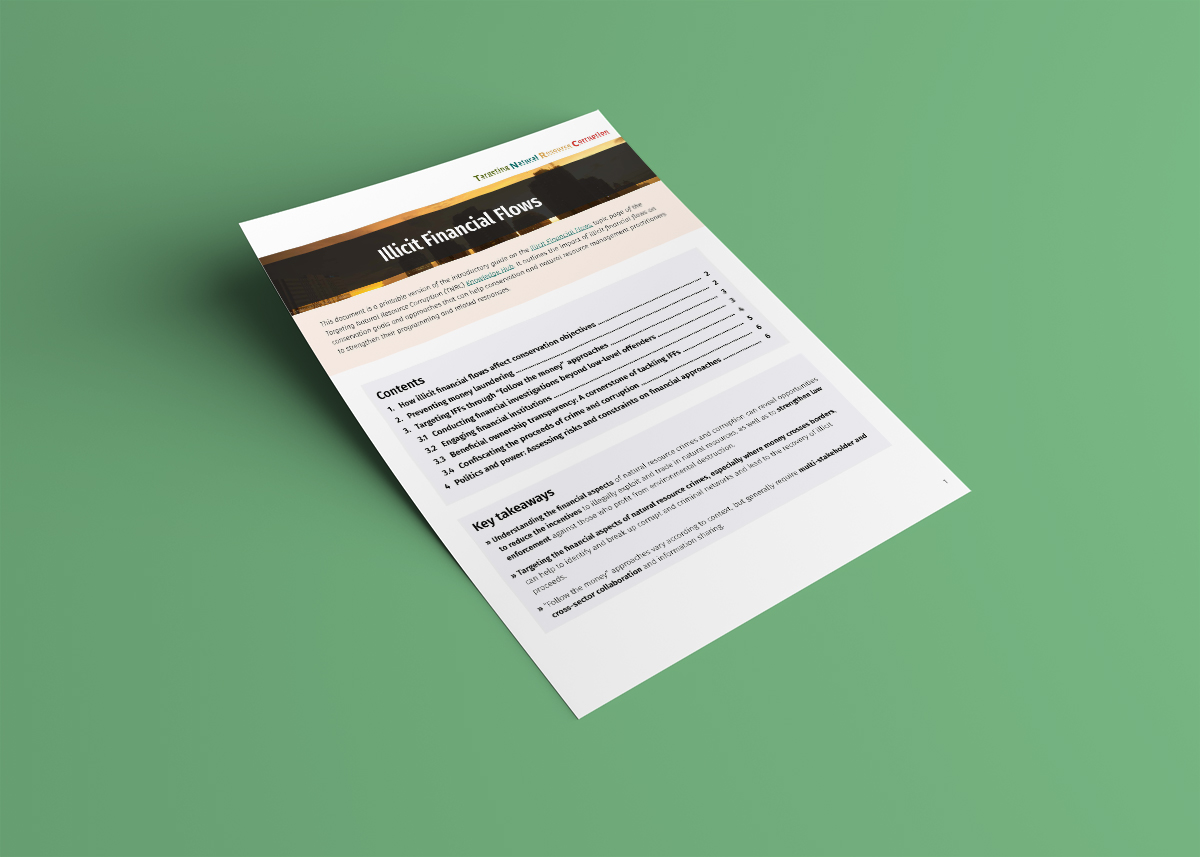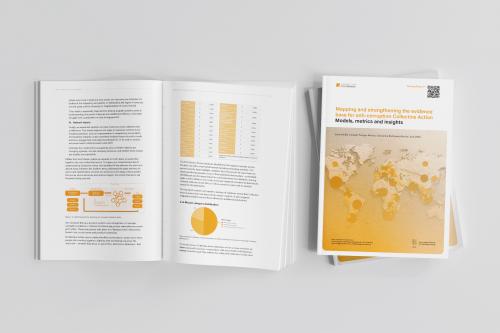Research on illicit financial flows and natural resource corruption – new synthesis for practitioners

Crimes involving wildlife, forests and fish are typically undertaken for profit. Understanding the financial aspects of such crimes and related corruption could help practitioners to tackle them more effectively, improving conservation outcomes.
Over the last years, the USAID-funded Targeting Natural Resource Corruption (TNRC) project has made significant progress in exploring and explaining illicit financial flows and their relation to natural resource corruption.
To help practitioners navigate the relevant articles, how-to guidance and eLearning courses on the TNRC Knowledge Hub, the Basel Institute's Green Corruption team has developed an introductory guide in collaboration with TNRC consortium partners and external experts. It:
- outlines the impact of illicit financial flows on conservation goals;
- explains approaches that can help conservation and natural resource management practitioners to strengthen their programming and related responses;
- offers guidance on risks and constraints to such financial approaches.
The guide leads the Illicit Financial Flows topic page of the TNRC Knowledge Hub and stresses three main takeaways:
- Understanding the financial aspects of natural resource crimes and corruption can reveal opportunities to reduce the incentives to illegally exploit and trade in natural resources, as well as to strengthen law enforcement against those who profit from environmental destruction.
- Targeting the financial aspects of natural resource crimes, especially where money crosses borders, can help to identify and break up corrupt and criminal networks and lead to the recovery of illicit proceeds.
- "Follow the money” approaches vary according to context, but generally require multi-stakeholder and cross-sector collaboration and information sharing.
Learn more about the Green Corruption programme and view all TNRC research.



